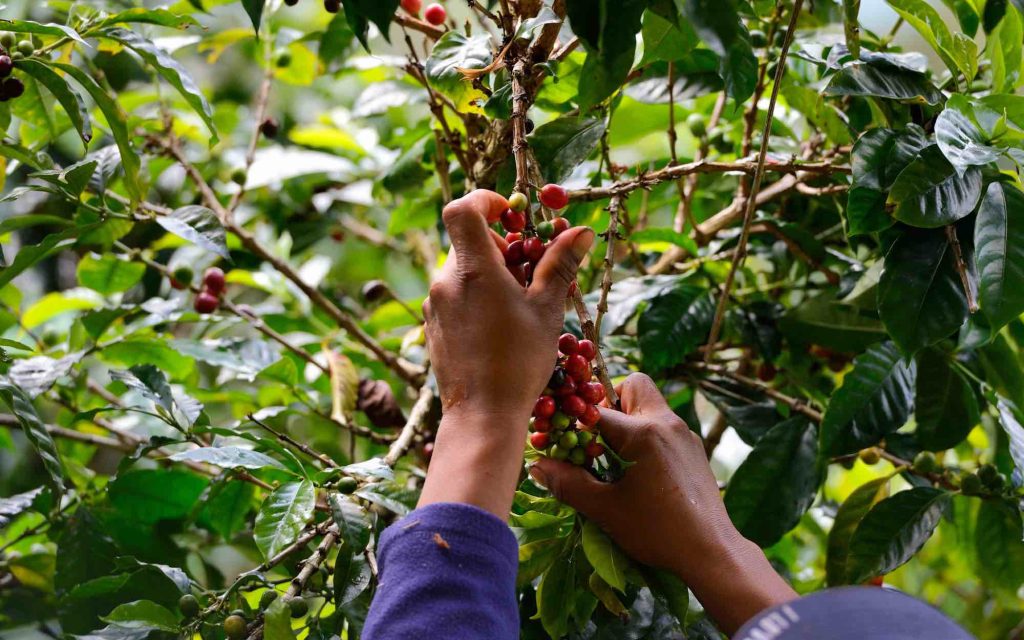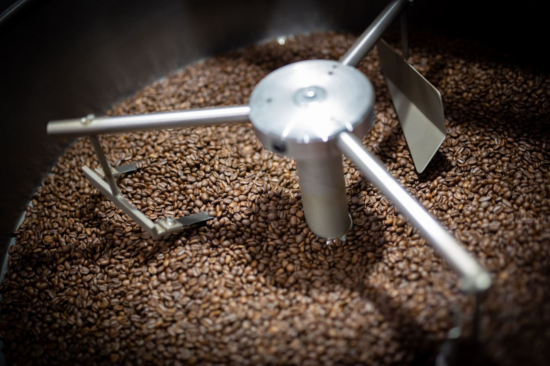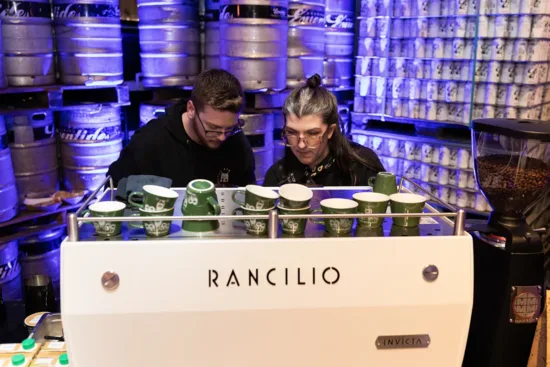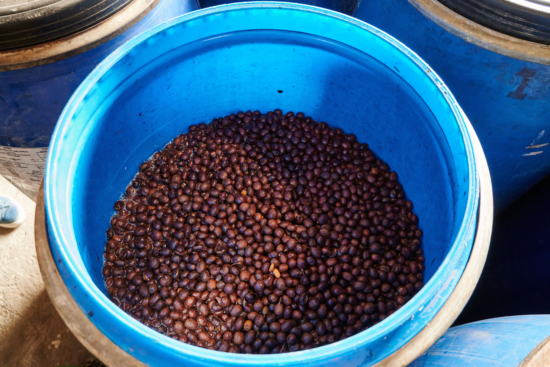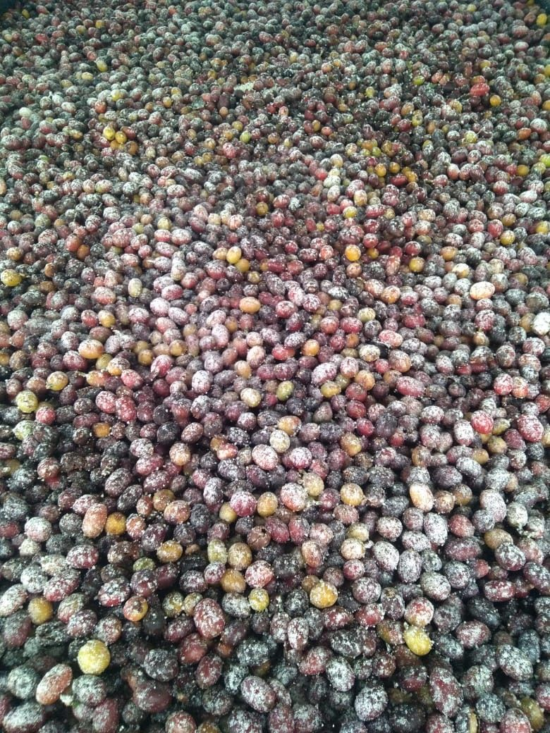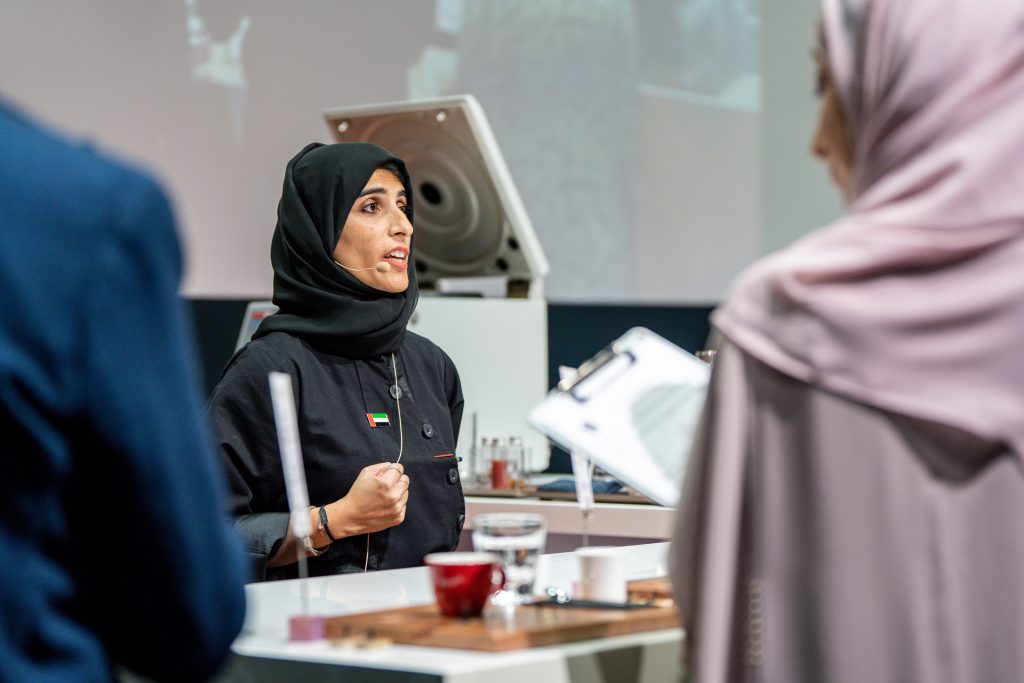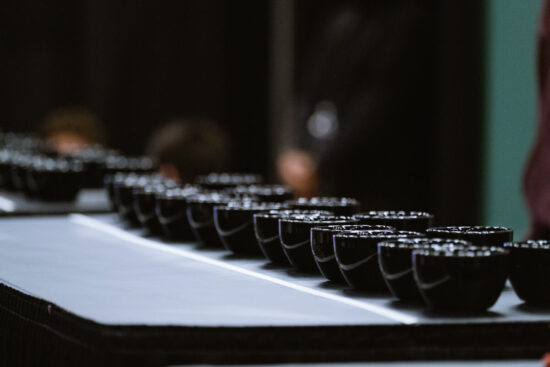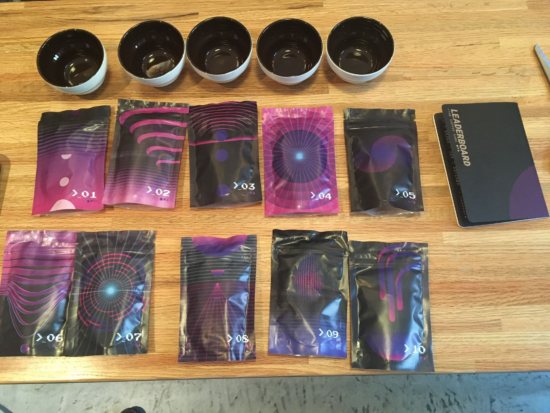This is the absolute fastest way to make French press iced coffee. Just forget about cold brew concentrate – with this Quick French Press Iced Coffee Recipe you can have your iced coffee ready in 5 – 6 minutes. Who doesn’t like the French press?! It’s...
Conflict in the Red Sea: Why coffee roasters need to prepare for shipping delays
Conflict in the Red Sea: Why coffee roasters need to prepare for shipping delays
Conflict in the Red Sea: Why coffee roasters need to prepare for shipping delays
Conflict in the Red Sea: Why coffee roasters need to prepare for shipping delays
Conflict in the Red Sea: Why coffee roasters need to prepare for shipping delays
Conflict in the Red Sea: Why coffee roasters need to prepare for shipping delays
I Tested Keurig K Compact – Here’s Everything You Need To Know
The most affordable Keurig coffee maker is available exclusively at Walmart and comes at a sweet price of only $59.00. In this article, you’ll find out how good it really is, and also find additional information like how to clean it, or do you need a water...
Here’s How to Change Keurig 2.0 Water Filter Easily
Not sure how to change Keurig 2.0 water filter? Here are step-by-step instructions that will help you do it quickly and easily. Keurig water filter should be changed every 2 months or 60 tank refills. The water filter is located inside the water tank, on the valve at...
The coffee rose for assessing Anaerobic coffee
I just came across this really neat tool to assess anaerobic coffees. I haven't used it for cupping yet. I'm not sure I will like it either because the idea of lowering the score of the coffee just because it tastes has some thyme flavors. At the same time I...
Three US Coffee Championship Events Are Heading To Rancho Cucamonga
This article is from the coffee website Sprudge at http://sprudge.com. This is the RSS feed version. The 2024 US Barista Championship, Brewers Cup, and Cup Tasters will take place March 15-17 at Klatch Coffee Roasters in Rancho Cucamonga, California.
The Origin Story of Turtle Island Coffee in Vancouver, B.C.
A new Indigenous-owned coffee company based in Vancouver, British Columbia, called Turtle Island Coffee has launched with the goal of exposing more people to high quality specialty coffee and Indigenous...
Get Ready for The Barista League’s 2024 Season
The Barista League has announced 12 competitions across four continents. BY J. MARIE CARLANBARISTA MAGAZINE ONLINE Photos courtesy of The Barista League When The Barista…
Get Ready for The Barista League’s 2024 Season
The Barista League has announced 12 competitions across four continents. BY J. MARIE CARLANBARISTA MAGAZINE ONLINE Photos courtesy of The Barista League When The Barista…
Get Ready for The Barista League’s 2024 Season
The Barista League has announced 12 competitions across four continents. BY J. MARIE CARLANBARISTA MAGAZINE ONLINE Photos courtesy of The Barista League When The Barista League announces new events, it’s worth paying attention! This year, the schedule will be...
Weekly Coffee News: EUDR and Africa + More Celebrity Coffee
Welcome to DCN’s Weekly Coffee News. Keep up with all the latest coffee industry stories and career opportunities by subscribing to DCN’s newsletter. Tell our editors about your news here. Report: Small-Scale Farmers in...
Do Higher Coffee Prices Mean More Money For Farmers? A Story From Sumatra Shows It’s Complicated
This article is from the coffee website Sprudge at http://sprudge.com. This is the RSS feed version. Since coffee costs more now than ever, do those coffee prices impact the amount of money earned by coffee farmers?
Coffee News Recap, 2 Feb: Applications open for Australia’s Richest Barista 2024, De’Longhi reports 4.6% revenue increase after La Marzocco move & other stories
Every Friday, Perfect Daily Grind rounds up the top coffee industry news from the previous week. Here are this week’s coffee news stories. The word of the week is: expansion. Mon, 29 Jan AeroPress launches limited-edition Clear Pink brewer. The coffee brewer is made...
Watch The 8 Best Coffee Videos Vying For Sprudgie Awards
This article is from the coffee website Sprudge at http://sprudge.com. This is the RSS feed version. The best coffee videos from 2023 featuring Cafe Imports, Aramse, Nguyen Coffee Supply, Wildly, Mirror Coffee Roasters, Alto Stories, Quek Shio, and Cafe Retiro.
Robusta is great and has untapped potential
I live in the US and my typical choice of coffee is lightly roasted Ethiopian pour overs. I generally love acidity and fruit flavors in my coffee. My experience with Robusta has often been poor. Very dark, roasty and maybe chocolatey. I participated in the Hoffman...
Design Details: Brewing Reinvented at ULA Café in Melbourne
Welcome to Design Details, an ongoing editorial feature in Daily Coffee News focused on individual examples of coffee shop architecture, interior design, packaging design or branding. If you are a coffee...
Robert Downey Jr.’s New “Happy Coffee” Is Really Depressing
This article is from the coffee website Sprudge at http://sprudge.com. This is the RSS feed version. Robert Downey Jr. and Craig Dubitsky team up for Happy Coffee.
Out Now: The February + March 2024 Issue of Barista Magazine!
In our new issue we feature Lisa Lawson from Glasgow, Scotland, take a look at the newest grinders, explore spring drink inspiration, see how more women are getting involved in coffee tech, and much more! BY SARAH ALLENBARISTA MAGAZINE We’re stoked to announce the...
The coffee industry’s biggest competition: The story of the World Barista Championship
Every year, the global coffee industry gears up for one of its most exciting and groundbreaking competitions: the World Barista Championship. For more than two decades, the WBC has been one of the biggest catalysts for change and innovation in specialty coffee, and...
The 2023 Specialty Coffee Transaction Guide Has Landed
The 2023 edition of the Specialty Coffee Transaction Guide (SCTG) guide went live today, providing actors throughout the coffee chain a data-driven tool for green coffee price discovery. The full...
Espro great until I needed replacement filter ☹️
I've had an Espro P7 for nearly four years after seeing glowing praise on this sub (to which I later contributed). Before I bought the P7 I looked at the replacement parts available and they seemed like a solid company in that they sold e.g. replacement filters...
New Bill Requires More Kona In Your Kona Coffee
This article is from the coffee website Sprudge at http://sprudge.com. This is the RSS feed version. Currently a coffee only need to be 10% Kona to be labeled as such.
What’s the best and worst part about owning and running a coffee shop?
I'm not interested in getting into it myself, as I have no experience in the service industry, no real appetite for risk and no desire to run a business in general. But sometimes I think about it and I wonder what's the most enjoyable thing about it and...
minimum dose size?
I use the Hario switch to brew my coffee and am trying to reduce my caffeine consumption. Hence I would like to brew smaller cups of coffee. I am currently using 10g of coffee with 160g of water. (1:16 Ratio) I am wondering if there is a minimum amount of coffee...
[CAFE OWNERS] Background before starting a shop?
I’ve worked in coffee for 6 yrs as a barista and shift supervisor and have passion for it. I’ve decided that I want to open my own place in the future and so I’ve been doing the research to make a business plan. Lately, however, I’ve begun to realize just how many...
Conflict in the Red Sea: Why coffee roasters need to prepare for shipping delays
Like many other industries, conditions in the coffee supply chain can change quickly, and in turn, have a huge impact on all actors and stakeholders. Price volatility is one of the more pertinent – which is influenced by many factors. These include fluctuations in supply and demand, extreme or unexpected weather events, global economic downturn, and social or political unrest.
Additionally, these factors can also affect shipping coffee from producing countries to export markets. We saw this with Covid-19, which caused the freight industry to collapse and shipping companies to massively reduce their capacities. But with demand for coffee only growing during the pandemic, coffee stockpiles soon started to reach record lows.
Most recently, however, conflict in the Red Sea (a narrow inlet of the Indian Ocean in between Africa and Asia) and escalating political tension in the Middle East could have a huge impact on global trade.
“Recent attacks on commercial vessels transiting the Red Sea have already started to disrupt key shipping routes, eroding slack in supply networks, and increasing the likelihood of inflationary bottlenecks,” the World Bank stated in its latest report.
Ultimately, this means the coffee supply chain is highly likely to be affected – so roasters need to best prepare.
I spoke to Betiel Medhanie, East Africa Logistics Manager at Sucafina, to find out how.
You may also like our article on why it becomes more expensive to ship coffee.

What’s happening in the Red Sea?
The current conflict in the Red Sea – which separates the coasts of Egypt, Sudan, and Eritrea from those of Saudi Arabia and Yemen – is incredibly complex and hard to unpack.
In a more immediate sense, it largely stems from Israel’s ongoing war in Gaza, which first started in early October 2023. Since then, over 25,000 Palestinian civilians have tragically been killed. This conflict also has its own long and complicated history dating back to World War One.
In response to Israeli attacks in Gaza, the Houthis – a political and military organisation in Yemen – have started to attack commercial shipping vessels travelling through the Red Sea. Members of the group have also boarded or hijacked cargo ships, although no serious injuries or deaths have been announced so far.
To avoid the conflict as much as possible, shipping companies like Maersk, Hapag-Lloyd, and MSC have halted or rerouted their vessels. According to the Atlantic Council, seven of the ten largest shipping companies have now suspended operations in the Red Sea.
How will the conflict affect global trade?
Simply put, the Red Sea is one the most important trade routes in the world. In a recent article, the Guardian stated about 12% of global trade passes through the Red Sea, including 30% of global container traffic. This equates to billions of dollars of goods passing through this route every year.
So with many freight companies avoiding the Red Sea and rerouting around the Cape of Good Hope (on the southern tip of Africa), total shipping times will increase by a few weeks. Moreover, shipping companies who choose to travel through the conflict zone are also facing higher insurance risk premiums. Either option comes with its own unique challenges and uncertainties.
There have been efforts to stop the attacks on and hijacking of cargo ships, including the formation of the Operation Prosperity Guardian coalition. But as of now, the conflict is still ongoing.

Impact on the coffee supply chain
The vast majority of the world’s coffee supply is transported from producing countries to export markets by cargo ships. This means many green coffee buyers and roasters are sure to be affected by the conflict in the Red Sea – mainly as a result of ensuing delays and higher shipping prices.
“Most carriers have paused service or rerouted vessels from the Bab-el-Mandeb Strait because of the continuing attacks on vessels there,” Betiel says. “Those who have continued service have introduced a war risk surcharge and declared force majeure.”
This is a common clause in contracts which essentially ensures both parties are not liable to fulfil their obligations when an extraordinary event or circumstance occurs beyond their control, including conflict.
“The diversion is causing more traffic in the Suez Canal and in general, we’re seeing transit delays of two to three weeks and slow container turnover,” Betiel explains. “If this continues, we anticipate that reduced capacity could trigger increased rates on top of the already implemented surcharges.”
Drawing comparisons with the pandemic
Shipping delays aren’t an uncommon occurrence in any industry. The last time we saw disruptions this significant, however, was during Covid-19.
With so many businesses forced to close, out-of-home coffee consumption took a huge hit. But this was offset with a simultaneous rise in at-home consumption. In the months following the pandemic as the global economy bounced back, demand for coffee and other consumer goods skyrocketed.
Resultantly, so that businesses could replenish their stocks to normal levels, there was a historic increase in the number of cargo ships coming into ports. What’s more, with social distancing measures in place at the time, port staff had to unload freight at a much slower rate – delaying shipments by weeks.
This led to unprecedented bottlenecks and disruptions across many supply chains, including in the coffee sector.
The problem was exacerbated even further in late March 2021 when the 400 metre-long Ever Given cargo ship blocked the Suez Canal for almost a week. At the time, it was carrying some 18,300 containers. The unintentional blockade also delayed the movement of 369 other ships which were unable to pass through the canal – resulting in an estimated loss of US $15 million per day for affected businesses.
Effectively, container space then became more competitive, which caused shipping prices to rise dramatically. In July 2021, a Bloomberg article stated the price of a single shipping container travelling from Brazil to the US had reached around US $4,000 – double the normal rate. Other reports at the time suggested containers travelling from Shanghai to the Netherlands sold for US $10,000, which is more than a 540% increase.
Roasters (especially smaller ones with less inventory on hand) then had to absorb the costs themselves, or raise their prices and pass them onto the end consumer.

How can coffee roasters best prepare for shipping delays?
In the years since the pandemic, we have seen how the coffee industry has remained resilient and managed to adapt to the ensuing challenges. So given that the scale of the conflict in the Red Sea isn’t as comparable to that of a global pandemic, there’s hope that recent disruptions will be more manageable for roasters and green buyers.
That doesn’t mean, however, that roasters shouldn’t prepare for shipping delays and increased costs as much as they can.
“We suggest that roasters contact their suppliers to review new arrival dates,” Betiel says. “Roasters should expect at least an additional two to three weeks for most shipments to arrive. It’s helpful to subscribe to weekly arrival updates on your importer’s website or with your trader.”
Maintaining green coffee quality will be one of the biggest priorities. The longer it takes coffee to reach its import destination, the more likely it is that quality will drop. Green coffee, however, technically stays fresh for up to a year – so delays of two to three weeks shouldn’t cause too many serious issues.
“Check your inventory levels regularly and estimate your consumption far in advance to account for slower arrival times,” Betiel tells me. “Additionally, check out spot offerings if you need last minute coffee and subscribe to newsletters to receive important information, such as monthly logistics reports.”
Dealing with increased costs
Undoubtedly, there will be financial repercussions of the conflict in the Red Sea and its impact on global trade. And with many coffee businesses still facing higher energy and food costs – tightening already slim profit margins – it’s likely that end consumers will also have to pay more.
It’s a difficult balancing act for roasters. They need to make sure they pay producers fairly for their coffee, while also not passing down too many extra costs to consumers.
Ultimately, communication and transparency are key. Although it’s more difficult than ever to provide customers with accurate timescales and updates, they will only help to strengthen partnerships and relationships.

Logistical issues are certainly a concern, but industry can still be manage them effectively with plenty of preparation.
While it seems that shipping delays will be persistent for another few months at least, roasters and green buyers should strive to remain resilient and adaptable.
Enjoyed this? Then read our article on logistical challenges in the coffee sector.
Perfect Daily Grind
Want to read more articles like this? Sign up for our newsletter!
The post Conflict in the Red Sea: Why coffee roasters need to prepare for shipping delays appeared first on Perfect Daily Grind.





